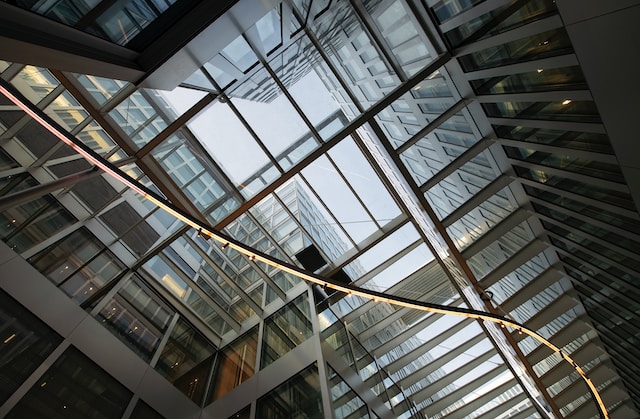Roofing is a critical aspect of any building’s structural integrity, and whether it’s a commercial or residential property, ensuring the right type of roofing is in place is essential. When it comes to roofing, one question that often arises is whether commercial roofers are different from residential roofers. In this blog post, we’ll explore the key distinctions between the two and why these differences matter. We’ll delve into the materials used for commercial roof types, discuss the unique challenges faced by commercial roofers, and highlight the skills required for each type of roofing project. By the end, you’ll have a clear understanding of the specialized world of commercial and residential roofing.
Materials Used for Commercial Roofing
One of the most significant distinctions between commercial and residential roofing lies in the materials used. Commercial roofing projects often require more robust and durable materials due to the larger surface area and unique design considerations. If you are in San Jose, some of the most common are single-ply roofing, metal roofing, built-up roofing, roof coatings, and modified bitumen roofing. Here is a thorough review of all of them:
Single-Ply Membrane Roofing: Commercial buildings frequently use single-ply membrane roofing materials like TPO (Thermoplastic Olefin), EPDM (Ethylene Propylene Diene Terpolymer), and PVC (Polyvinyl Chloride). These materials offer excellent durability and weather resistance, making them ideal for large commercial structures.
Metal Roofing: Metal roofing is another popular choice for commercial properties. It’s known for its longevity, energy efficiency, and low maintenance requirements. Common metals used include steel, aluminum, and copper, and they come in various profiles and colors to suit different architectural styles.
Built-Up Roofing (BUR): BUR systems consist of multiple layers of roofing felt and bitumen (asphalt or coal tar) alternated to create a strong, waterproof membrane. This traditional roofing method is well-suited for flat or low-slope commercial roofs.
Modified Bitumen Roofing: Modified bitumen roofing combines the flexibility of a single-ply membrane with the durability of BUR. It’s made by modifying asphalt with rubber or plastic polymers and is often used in commercial applications.
Roof Coatings: Commercial roofs are frequently coated with reflective coatings to enhance energy efficiency and protect against UV rays. These coatings can extend the lifespan of the roof and reduce cooling costs.
Green Roofing Solutions: In recent years, eco-friendly roofing options such as green roofs have become popular in commercial settings. These roofs, covered with vegetation, not only improve energy efficiency but also help in stormwater management and contribute to the building’s sustainability profile.
Understanding these materials is crucial for commercial roofers, as they must assess the specific needs of each project and recommend the most suitable material for optimal performance and longevity.
Challenges Faced by Commercial Roofers

Commercial roofing projects present unique challenges that differentiate them from residential jobs. Here are some of the key challenges faced by commercial roofers:
Size and Complexity: Commercial roofs are typically much larger and more complex than residential roofs. They often have multiple levels, intricate designs, and the need to accommodate HVAC systems, skylights, and other equipment. This means that a company specializing in denver commercial roofing, or other areas, must have the expertise to navigate these complexities.
Safety Regulations: Due to the scale of commercial roofing projects, safety regulations are stricter. Commercial roofers must adhere to stringent safety protocols and ensure the well-being of their crew and anyone working in or around the building.
Business Interruption: Repair or replacement of a commercial roof can disrupt business operations, leading to potential financial losses for the building owner. Commercial roofers need to work efficiently to minimize downtime and ensure the continuity of business activities.
Weather Considerations: Commercial roofers often work on larger, more exposed roofs, making them susceptible to adverse weather conditions. They must plan around weather forecasts and take precautions to prevent water infiltration during the construction process.
Customization: Commercial buildings come in a wide range of shapes and sizes, each with its unique requirements. Commercial roofers must be skilled in customizing roofing solutions to meet the specific needs of each project.
Logistical Challenges: Coordinating materials, managing tight project timelines, and ensuring that all necessary equipment is on-site are additional logistical challenges that commercial roofers frequently face. Efficient project planning and supply chain management are crucial to meet deadlines and budget constraints.
Skills Required for Commercial and Residential Roofing
While both commercial and residential roofing require a core set of roofing skills, there are notable differences in the expertise needed for each:
Design and Planning: Commercial roofers must be adept at designing roofing systems for larger and more complex structures. They need strong project management skills to plan and execute roofing projects efficiently.
Safety Training: Due to the increased risks associated with commercial roofing, commercial roofers must undergo extensive safety training and stay up-to-date with the latest safety regulations.
Material Knowledge: As mentioned earlier, commercial roofers need a deep understanding of various roofing materials and their applications to recommend the most suitable options for each project.
Customization: Commercial roofers often need to tailor roofing solutions to meet the unique architectural and functional requirements of commercial buildings, whereas residential roofers typically deal with more standardized designs.
Team Management: Managing larger teams is common in commercial roofing projects, so commercial roofers need strong leadership and team management skills.
Advanced Technical Skills: Commercial roofers often require expertise in advanced roofing technologies such as cool roofs and integrated solar panels. This additional knowledge can set them apart from residential roofers, who may not commonly work with such systems.
In summary, commercial roofers are indeed different from residential roofers, primarily due to the scale, complexity, materials, and unique challenges associated with commercial roofing. Understanding these distinctions is crucial for property owners, contractors, and anyone involved in the roofing industry. Whether it’s a commercial or residential roofing project, choosing the right roofing professional with the appropriate skills and expertise is essential for the long-term durability and performance of the roof, ensuring protection for the entire structure beneath it.

